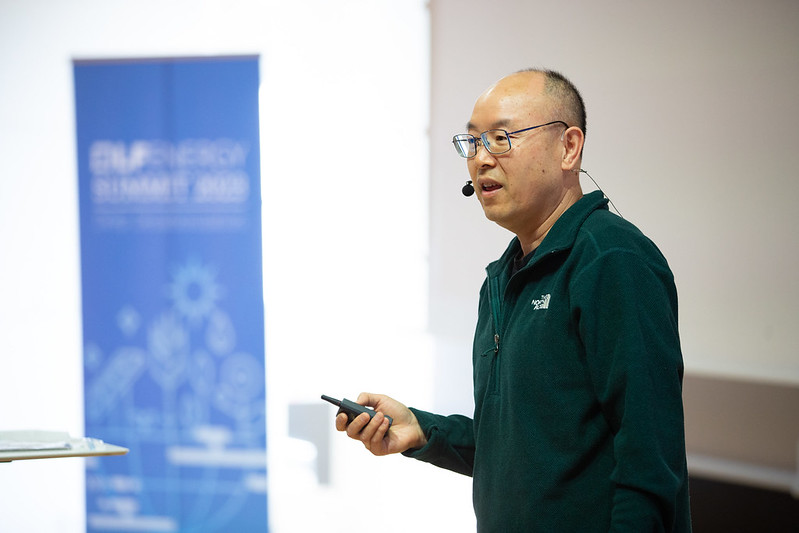LF Energy Summit Recap: Energy Sustainability in the ICT Industry: Collaborating for Transformation
LF Energy Summit 2023 featured an enlightening keynote session titled “A Vision of Energy Sustainability From the ICT Industry Perspective” (video follows below). Presented by Chris Xie, Head of Open Source Strategy at Futurewei, and Anna Hermansen, Ecosystem Manager at Linux Foundation Research, the session shed light on the collaborative efforts between Futurewei, LF Energy, and LF Research to drive innovations for energy sustainability. Here are the key points covered in the session:
The Growing Importance of Energy Sustainability:
Xie emphasized the significance of energy sustainability in the ICT sector. By 2030, it is projected that 25% of energy consumption will be attributed to the ICT industry alone, a fourfold increase from 2010. This increased energy consumption is primarily driven by the rise of pervasive AI and ICT technologies.
Challenges and Opportunities:
The keynote highlighted the challenges posed by the growing energy consumption in the ICT industry. For instance, the training of AI models like OpenAI’s ChatGPT-3 emits a significant amount of CO2, equivalent to the carbon emissions of an average American home over 56 years. Additionally, as network capacity increases from 4G to 5G and beyond, power consumption rises significantly. However, these challenges also present opportunities for transformative solutions.
Three-Pronged Approach to Addressing Challenges:
A systematic approach can help to tackle the energy sustainability challenges. The approach involves three key aspects:
- Promoting Carbon-Efficient Algorithms and Programming Languages: By leveraging open source and open standards collaboratively, it is possible to develop carbon-efficient algorithms and programming languages, as well as energy-efficient mobile networks.
- Democratizing Sustainable Energy Solutions: The focus is on providing open source solutions such as microgrids and virtual power plants, which have the potential to revolutionize the energy landscape. The aim is to ensure energy sustainability, freedom, and security for all.
- Collaboration and Global Solutions: Recognizing climate change as a global challenge, there needs to be increased collaboration with organizations like the Linux Foundation and the Green Software Foundation to drive global open source collaboration. Standardization efforts, such as the Network Carbon Intensity standard, are being promoted to measure and monitor network efficiency.
Research and Evidence-Backed Insights:
LF Research plays a vital role in generating evidence-backed insights into how open source can support the transition to cleaner and more democratic energy systems. Through qualitative and quantitative methodologies, they explore emerging technologies, best practices, and industry trends. The recent collaboration with Futurewei and LF Energy includes research on open source microgrids and the state of open source in the microgrid sector. These reports provide valuable findings and recommendations for fostering adoption and overcoming challenges in the field.
The Power of Open Source and Collective Wisdom:
The keynote speakers highlighted the belief that open source is a powerful tool for addressing climate change. It is seen as the collective wisdom of humankind, a shared knowledge base that fosters collaboration and innovation. By working together and leveraging open source, the ICT industry can contribute to mitigating climate change, achieving energy sustainability, and creating a brighter future for all.
